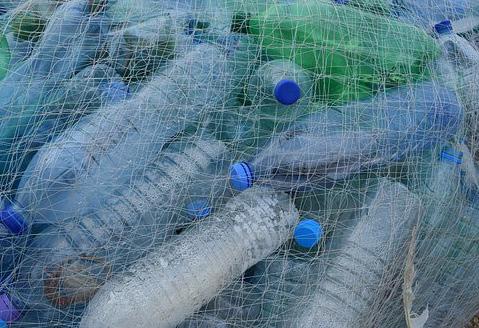
5 minute read
News round-up
by 3S Media
SUSTAINABILITY NEWS FROM AROUND THE WORLD
Coca-Cola launches new sustainability platform in Africa
Advertisement
The Coca-Cola Africa Operating Unit and its bottling partners recently announced the launch of JAMII, the new Africa-focused sustainability platform. The platform will house the company’s existing and new sustainability initiatives.
Through this signature platform, CocaCola hopes to attract like-minded partners to help accelerate the on-the-ground impact of its initiatives. The new platform will build and expand on the past accomplishments in three areas: water stewardship, the economic empowerment of women and youth, and waste management. In the area of women and youth economic empowerment, JAMII will promote and stimulate entrepreneurship opportunities through the provision of improved access to skills training, networks, finance and markets.
In the area of water stewardship, they will replenish 100% of the water used in the production of their products by managing water-use efficiency in their operations. For waste management, nearly all of Coca-Cola’s packaging is already recyclable, with the goal of recycling the equivalent of 100% of its packaging waste by 2030.
Manufacturers need to redesign their ‘circular’ economy PPE recycled and converted to energy

With 45% of global greenhouse gas emissions coming from the way we make and use products, local business needs to start looking at how it contributes.
The South African government has been implementing the appropriate changes, through the implementation of an updated National Waste Management Strategy. It outlines government policy and strategic interventions for the waste sector and is aligned and responsive to the UN’s Sustainable Development Goals.
“Over the last year or so, we have seen a small increase in big manufacturing businesses wanting to improve their environmental footprint and reduce the amount of waste they send to landfill, but not enough has happened yet,” says Justice Tootla, managing director of waste management company Averda.
Tootla asserts that for this to be achieved, business will need to partner with experts in waste to help develop a comprehensive, end-to-end waste management programme that will help drive a circular economy.
“We all want to see a South Africa with zero waste-to-landfill, cleaner and safer communities, the financially viable and stable management of waste, and to allow for our natural systems to regenerate for future generations,” concludes Tootla. A French start-up company called Plaxtil has come up with a solution to convert medical waste such as Covid-19 facial masks into energy. How the process works: • The masks are collected and placed in quarantine for four days. • After this period, they are ground into small pieces. • The small pieces are then put through ultraviolet light, which ensures that they are completely decontaminated before the recycling process begins. “We take fabrics, masks. We collect them, we grind them, mix them with binding material and we transform them into material that we call Plaxtil, which can be used in the industry and moulded like normal plastic,” says Olivier Civil, co-founder of Plaxtil.
The masks can then be recycled into a number of objects; however, they are currently being turned into objects that will assist in fighting Covid-19, such as face shields.


Biogas a billion-dollar industry in SA
The Southern African Biogas Industry Association has revealed that the biogas industry’s local and foreign direct investment value is between R52 billion and R250 billion.
Many countries in Africa are faced with serious energy shortages. In rural areas, there are frequent power outages and insufficient energy assets in most African countries. Dr Timothy Afful-Koomson, CFO: Climate at the African Development Bank, says that biogas can be transformed into “clean and affordable energy, to help deal with load-shedding and improve the accessibility and reliability of electricity supply in the African countries.”
The concept of using biogas in Africa should be highly considered, as the emissions reduction ability of biogas is much higher than other forms of renewable energy, such as solar.
“Unfortunately, fewer than 30% of African countries have biogas as one of the renewable energy systems to meet their Nationally Determined Contributions targets.”

CHALLENGES IN SA RECYCLING INDUSTRY
South Africa has one of the most effective recycling industries worldwide and, according to a Plastics SA report, SA’s recycling rate is also a step ahead of Europe.
Although most waste can be recycled, not all waste is. Infrastructure plays a big role in recycling. Some materials are not recycled because of the lack of equipment that would be used to recycle. Among the issues that affect obtaining the adequate equipment are costs. Equipment is expensive and not enough undesirable waste is out there to warrant the need for it, Plastics SA revealed.
In South Africa, waste that cannot be recycled or that is deemed ‘unprofitable’ is often dumped in landfills, while other countries have equipment such as incinerator technologies that can be used to process plastics to oil or energy. South Africa currently recycles 46% of its plastics, which is higher than most countries. Paper is recycled at 70%, beverage cans/metal is recycled at 72%, and glass is recycled at 42%.


Use of wood to help nations decarbonise
Emissions from the built environment come from two main sources: operational emissions and embodied emissions.
David Hopkins, chief executive of the Timber Trade Federation, says, “Going into COP26, the case for embracing the forest and timber industries has never been stronger or more urgent. Wood products can create better livelihoods for millions, and a built environment that works in harmony with nature.”
The world can make greater use of sustainable wood to transform the built environment, which is currently responsible for approximately 40% of global energy-related CO emissions. 2
“South Africa is ripe for scaling up the use of timber in construction; however, many people perceive wood as rudimentary or weak. But for engineering professionals and architects of mass timber structures, there is significant opportunity for innovation, localisation and employment creation.”










